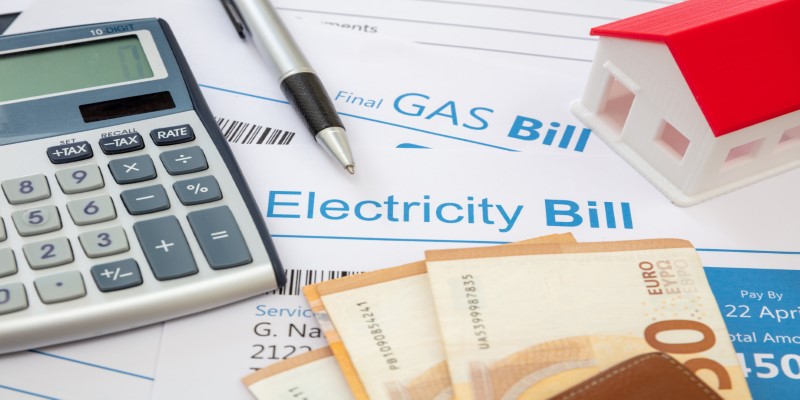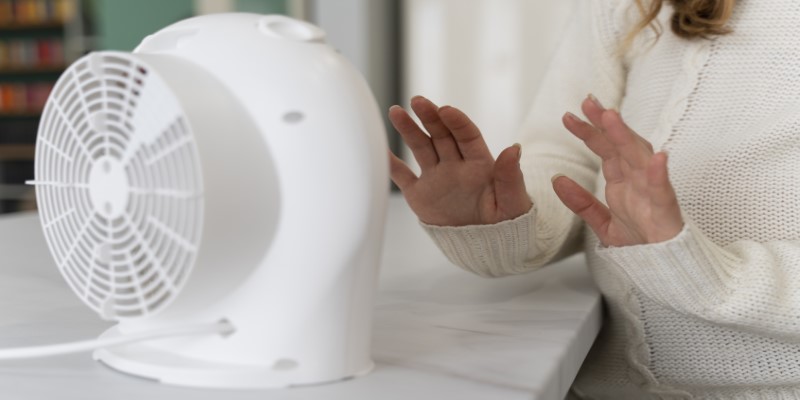Cost-Effective Heatwave Hacks to Reduce Your Energy Bill
Sep 14, 2024 By Susan Kelly
When the sweltering heat of summer hits, keeping your home cool can feel like an endless battle against rising energy bills. The combination of scorching temperatures and higher air conditioning use can quickly turn your budget upside down. But dont worrytheres no need to resign yourself to sweating it out or spending a fortune. By applying a few clever and cost-effective strategies, you can stay comfortable without watching your energy costs soar.

In this article, we'll explore practical heatwave hacks that will help you keep your cool and keep your wallet happy. Whether you're looking to optimize your air conditioning, make the most of natural cooling, or tweak your daily habits, we've got you covered with tips that wont break the bank.
Smart Home Energy Savings: Technology Tips for Reducing Utility Costs
Explores various smart home technologies that can help you significantly lower your utility bills by optimizing energy use.
Optimize Your Air Conditioning
Your air conditioner is likely your biggest energy expense during a heatwave. To make it more cost-effective, start by setting your thermostat to a higher temperature. Each degree you raise can significantly reduce your energy consumption. The U.S. Department of Energy suggests setting your thermostat to 78F (25C) when youre home and 85F (29C) when youre away.
Regular maintenance is also key. Ensure your air conditioners filters are clean and replace them every few months. A clean filter helps the system run more efficiently. Additionally, consider investing in a programmable thermostat that adjusts temperatures based on your schedule. This can prevent the air conditioner from running when you dont need it.
Use Fans Wisely
Ceiling fans and portable fans can be powerful allies in reducing your energy bill. Fans help circulate air and create a cooling effect, allowing you to raise your thermostat by a few degrees without sacrificing comfort. Ensure your ceiling fan blades are spinning counterclockwise to push cool air downwards.

To maximize their efficiency, use fans in conjunction with your air conditioner. Fans can help distribute the cool air more evenly throughout your home. Remember to turn off fans when you leave a room, as they cool people, not spaces.
Insulate and Seal Your Home
Good insulation can keep the heat out and the cool air in, reducing the workload on your air conditioner. Check for any gaps or leaks around windows, doors, and ducts. Sealing these gaps with weatherstripping or caulk can prevent cool air from escaping and warm air from entering.
Blinds, shades, and curtains also play a role in insulation. During the hottest part of the day, close your blinds or shades to block out the sun. Reflective window films or thermal curtains can also help reduce heat gain and keep your home cooler.
Opt for Energy-Efficient Appliances
If you're in the market for new appliances, look for energy-efficient models. Air conditioners, refrigerators, and other cooling appliances with high Energy Star ratings use less energy and can lower your utility bills over time.
For existing appliances, regular maintenance is essential. Clean the coils on your refrigerator and freezer, as dust and dirt can make them work harder and consume more energy. Similarly, ensure that your air conditioners outdoor unit is free from debris to maintain optimal performance.
Harness the Power of Natural Cooling
Take advantage of natural cooling methods to complement your air conditioner. Open windows in the early morning and late evening to let in cooler air. Cross-ventilation, achieved by opening windows on opposite sides of your home, can help create a breeze that cools the interior naturally.
Consider installing vents or skylights to improve airflow. If your roof has good insulation, the attic can be a significant heat source. Installing an attic fan or improving ventilation can help expel hot air and reduce the burden on your air conditioning system.
Adjust Your Daily Routine
Your daily routine can impact your energy consumption. Try to avoid using heat-generating appliances like ovens and stoves during the hottest parts of the day. Opt for microwave meals, cold dishes, or outdoor grilling instead.
Laundry and dishwashing can also contribute to indoor heat. Use these appliances during cooler times of the day, such as early morning or late evening. If possible, air-dry clothes and dishes to minimize the use of heat-producing appliances.
Enfold Landscaping for Shade
Landscaping can significantly contribute to cooling your home. Planting trees and shrubs strategically around your home can provide natural shade and reduce heat gain. Deciduous trees, which lose their leaves in winter, are particularly effective as they block the sun in summer while allowing sunlight to warm your home in winter.
Additionally, shading your air conditioner with landscaping can improve its efficiency. Just ensure that plants dont obstruct airflow around the unit, as this can decrease its performance.
Invest in Smart Home Technology
Smart home technology can significantly contribute to reducing your energy bill during a heatwave. Smart thermostats, for example, allow you to control your homes temperature remotely through your smartphone. This means you can adjust settings while youre away, ensuring that your air conditioner doesnt run unnecessarily.

Smart thermostats can also learn your habits and preferences over time, optimizing the temperature settings to save energy while keeping you comfortable. Additionally, smart plugs and energy monitors can help you track and manage the energy consumption of various appliances, enabling you to identify and reduce unnecessary energy use.
Conclusion
Managing a heatwave while keeping your energy bill under control doesnt have to be a challenge. By implementing these cost-effective hacks, you can enjoy a cooler home without compromising your budget. From optimizing your air conditioning to using natural cooling methods and making strategic adjustments to your daily routine, these tips can help you stay comfortable and save on energy costs.
Remember, every small adjustment counts. By combining several strategies, youll not only stay cooler but also reduce your overall energy consumption, making your heatwave experience more manageable and cost-effective.





